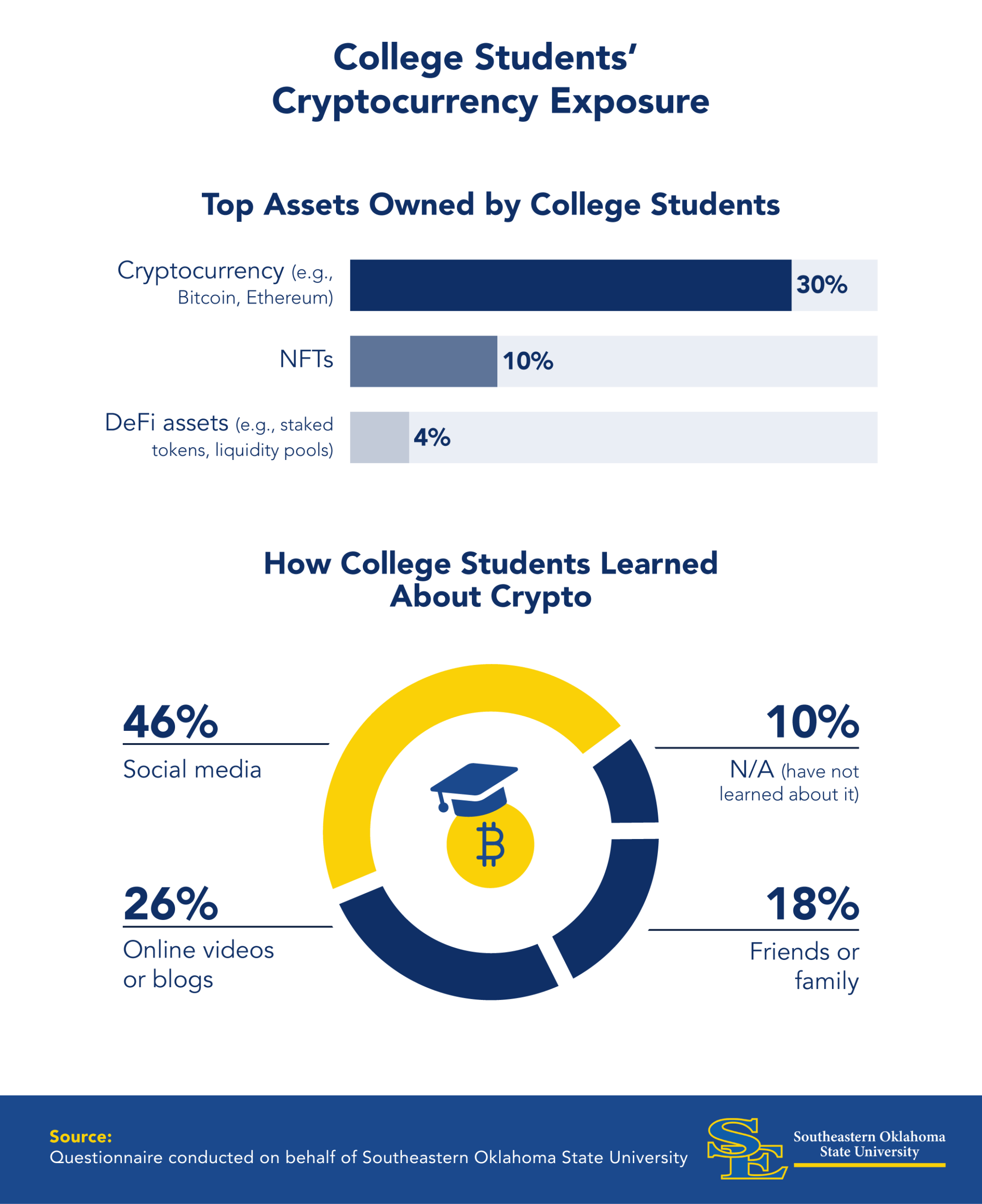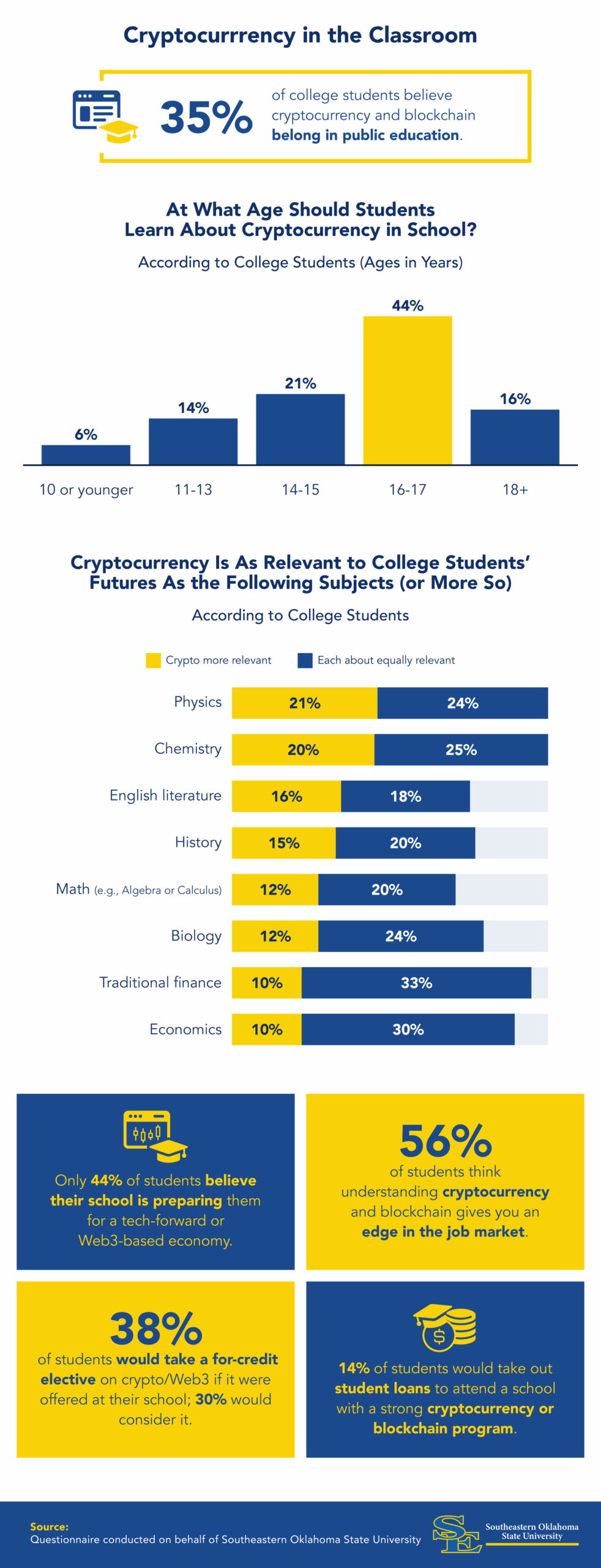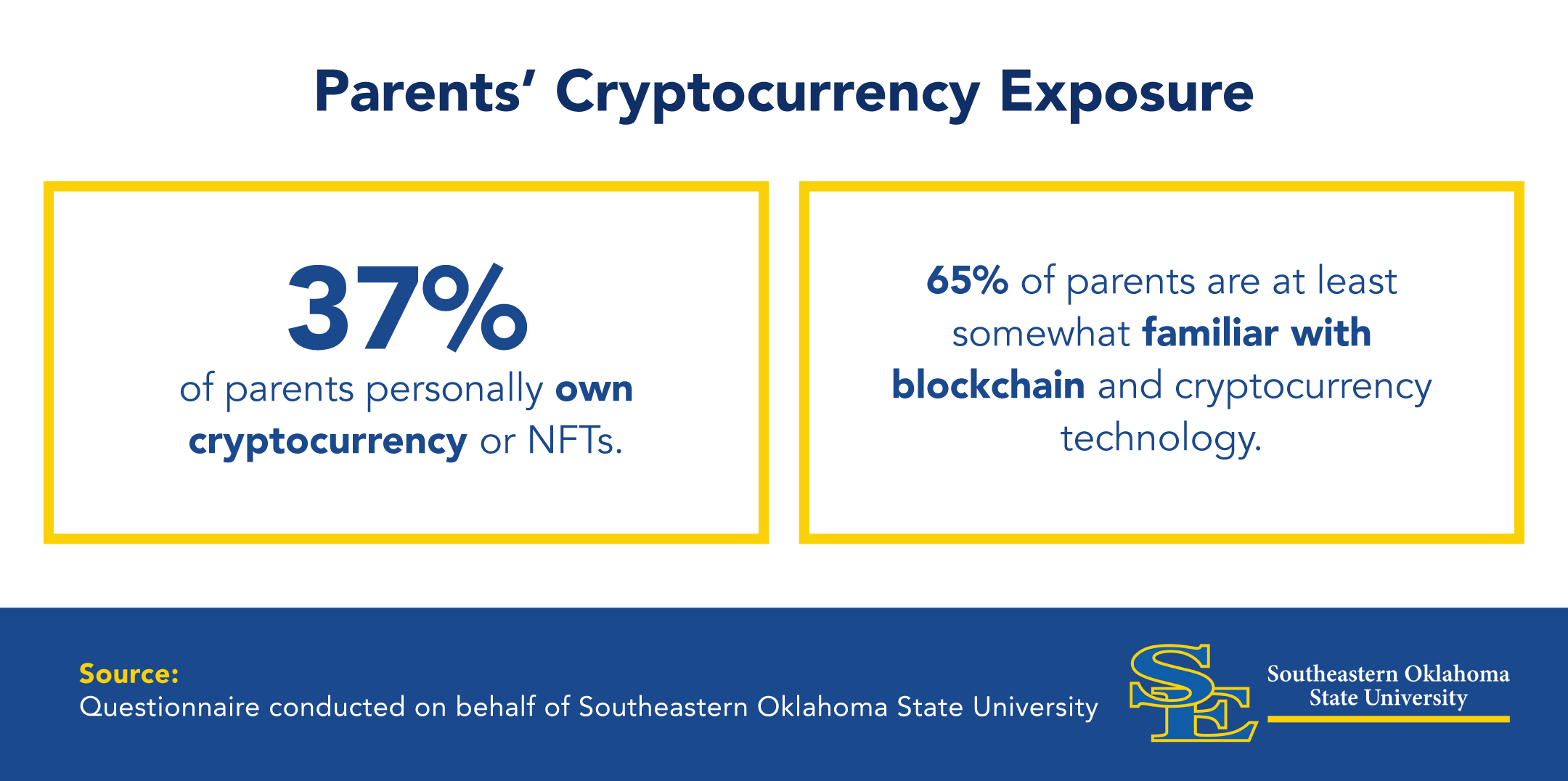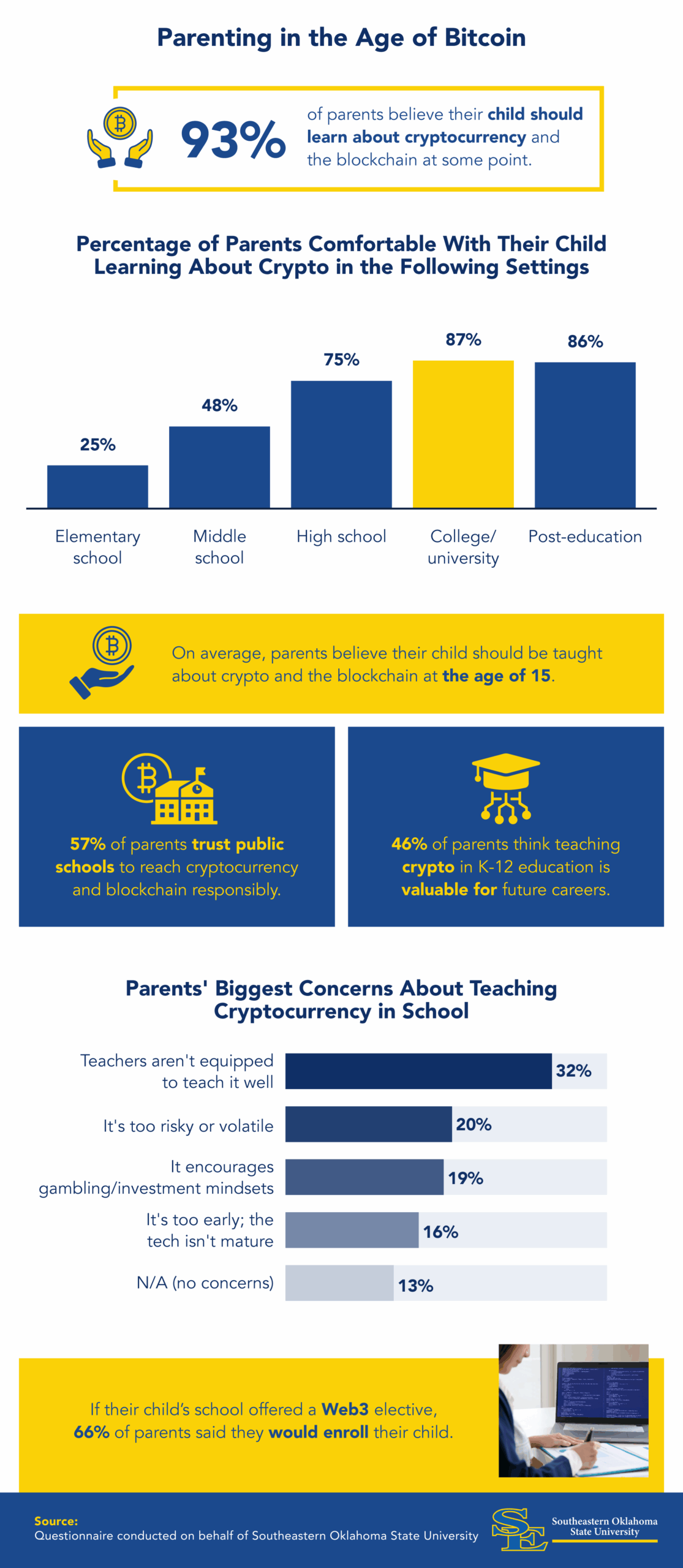
From Bitcoin headlines to the rise of Web3, cryptocurrency and blockchain have become central to conversations about technology, finance and the future of work. But how soon should students start learning about them, and should schools play a role? To find out, a questionnaire conducted on behalf of Southeastern Oklahoma State University queried over 250 college students and over 750 parents for their perspectives on crypto in education, including when and how it should be taught. Their responses reveal strong interest in early instruction, potential career benefits and how schools can prepare students for a rapidly evolving digital economy.
Key Takeaways
- Nearly one in two college students (49%) have owned a cryptocurrency-related asset; 30% of college students currently own cryptocurrency.
- 35% of college students believe cryptocurrency and blockchain belong in public education.
- 56% of students think understanding cryptocurrency and blockchain gives you an edge in the job market.
- 38% of students would take a for-credit elective on crypto or Web3 if offered at their school; 30% would consider it.
- 93% of parents believe their child should learn about cryptocurrency and the blockchain; on average, that would be at the age of 15.
- 46% of parents think teaching crypto in K-12 education is valuable for future careers.
- If their child’s school offered a Web3 elective, 66% of parents would opt their child in.
College Students See Career Advantages in Learning Crypto
Many college students are already engaging with cryptocurrency, whether through ownership, online learning or advocacy for formal education. Their views suggest that integrating blockchain and crypto into coursework could help prepare them for a tech-driven workforce.

Nearly one in two college students (49%) reported owning a cryptocurrency-related asset at some point, with 30% currently holding cryptocurrency. Men were nearly three times more likely to own crypto than women, and business majors stood out with 45% reported owning cryptocurrency. Additionally, 18% of computer science majors said they own NFTs.
Social media was the most common source of crypto knowledge, with 46% of students learning about it online before encountering it in any classroom.

Overall, 35% of students believe cryptocurrency and blockchain should be part of public education. Support was strongest among business majors (43%) and male students (43%). When asked about the best time to start learning about cryptocurrency in school, 44% of students preferred ages 16-17. Some even placed crypto ahead of traditional science classes in terms of personal relevance; 21% saw it as more relevant to their future than physics, and 20% said the same about chemistry. Yet, only 44% of students felt their school was preparing them for a tech-forward or Web3-based economy.
Job prospects also played a big role in student interest. More than half (56%) believed that understanding cryptocurrency and blockchain offers a competitive edge in the job market, with agreement rising to 75% among business majors and 63% among computer science majors. In fact, 38% said they would take a for-credit elective on crypto or Web3, while another 30% would consider it. Another 14% said they’d even take out student loans to attend a school with a strong cryptocurrency or blockchain program.
Parents Push for Earlier Education on Cryptocurrency
Parents also showed strong support for bringing cryptocurrency education into schools, emphasizing its value for career readiness and financial literacy.

More than one in three parents (37%) said they own cryptocurrency or NFTs, with ownership highest among those earning $150,000 or more (50%). Another 65% were at least somewhat familiar with blockchain and cryptocurrency technology.

An overwhelming majority (93%) believed their child should learn about cryptocurrency and the blockchain at some point, with parents saying age 15 is the ideal time to start. Nearly half (46%) even believed K-12 instruction on the subject would be valuable for kids’ future careers. Comfort levels rose with student age: 75% of parents were comfortable with their child learning about crypto in high school, and 87% in college.
Parents’ trust in the education system to cover these topics was strong. Over half (57%) trusted public schools to teach cryptocurrency and blockchain responsibly, and even more (66%) said if their child’s school offered a Web3 elective, they’d opt their child in.
Should Crypto Exist in Education?
Both students and parents agree: cryptocurrency and blockchain belong in the conversation about future-ready education. While students see career opportunities and real-world relevance, parents want early, responsible instruction that prepares the next generation for a rapidly digitizing economy. As technology reshapes industries, schools may face growing pressure to offer coursework that bridges financial literacy, computer science and blockchain applications.
Methodology
Conducted on behalf of Southeastern Oklahoma State University, this non-scientific, exploratory study was designed to explore behavioral and attitudinal trends. It was not intended to represent all MBA students (or the relevant audience). The questionnaire surveyed 251 college students and 754 parents about their thoughts on cryptocurrency and blockchain education in the classroom.
About Southeastern Oklahoma State University
Southeastern Oklahoma State University offers accessible and affordable online degree programs designed for working adults and career changers. Whether you’re looking to advance in your current role or prepare for a new industry, Southeastern provides education designed to support real-world career goals.
Fair Use Statement
This content is for noncommercial use only. If you share or reference this study, please link back to Southeastern Oklahoma State University and provide proper credit.